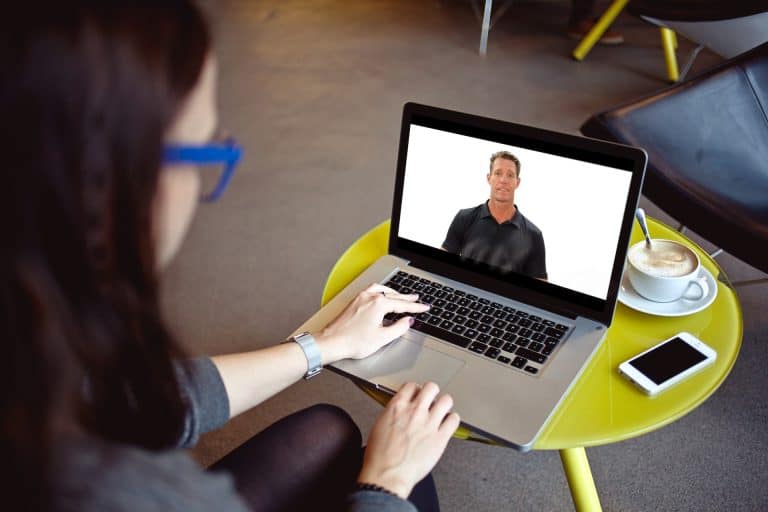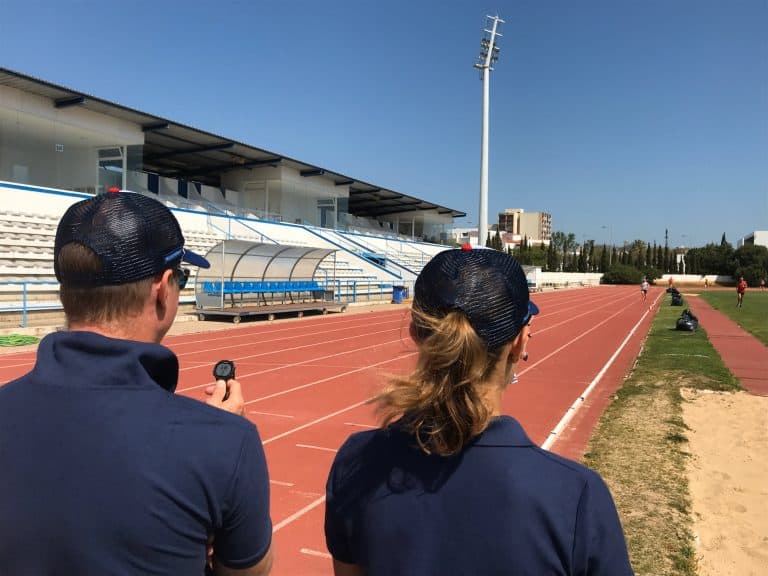In the high-stakes world of professional sports, where the difference between success and failure is razor-thin, understanding the mental and behavioral aspects of performance is just as critical as physical training. Few people appreciate this more than Gary Frazier, CEO and High-Performance Consultant for PerformUS. Through his work with elite athletes, including NFL players and military personnel, Gary has pioneered a holistic approach to mental performance. Central to this approach is his collaboration with Athlete Assessments, a partnership that has transformed the way athletes understand themselves and navigate their careers.
From Business Student to Performance Psychology Expert
Gary’s journey into performance psychology was far from conventional. Initially a business student, he discovered his true passion after an advisor introduced him to a newly launched curriculum in performance psychology.
“I checked it out and thought, ‘Oh, this is totally me. I’m going to go get a master’s in performance psychology,’”Gary recalled.
So, degree in hand and looking for opportunities to gain experience, Gary found his way to the highly successful University of Nevada, Las Vegas (UNLV) Optimum Performance Program in Sports (TOPS). Despite initial hestitation from administrators, his persistence led him to a pivotal role as a liaison between the athletic department and a groundbreaking research initiative.
Through this connection, Gary met Dr. Brad Donahue, who, despite Gary not being a clinical student, welcomed him into the program. “He decided that I was going to be a part of their cohort and I was going to get all the resources everybody else got.” Gary quickly proved his impact.
“After doing two or three workshops with them, [Dr. Donahue] also realized, ‘hey, this guy has a connection with making an impact with these athletes. They connect with him.’”
His efforts brought in full classrooms, entire teams, and high engagement from faculty. The program thrived, delivering clinical hours for students and robust data for research, and it didn’t go unnoticed. When presenting the results at a conference, representatives from the U.S. Military’s Master Resilience Training (MRT) Program approached Gary and offered him a position.
Bridging Military Resilience and Athletic Performance
Taking on a role with the U.S. Army provided Gary with the opportunity to expand his expertise further, working as a performance coach training soldiers and officers in mental resilience.
“This particular population has a lot of similarities to professional athletes,” he observed. “They have the focus, they have the drive, they have commitment to being the best they can possibly be.”
His time in the military reinforced the importance of mental skills training in high-pressure environments; including the importance of developing confidence, focus, and emotional regulation. This experience became the foundation for PerformUS, which he established to help athletes navigate the psychological demands of their sport and career transitions.
The Birth of PerformUS and Its Impact on Athletes
PerformUS, which stands for ‘Perform Under Stress’, was created with a clear mission: to equip athletes with the mental tools they need to excel.
“There’s a lot of stress and challenges that athletes, high performers, deal with on any stage. Ultimately, how they deal with that stress plays a big part in achieving their outcomes,”
says Gary.
Since its inception, PerformUS has worked with over 250 professional athletes, 150 college athletes, and thousands more through workshops and seminars. His approach has yielded remarkable results, including involvement with the last three Super Bowl champions and helping athletes transition from practice squads to becoming top players in their profession.
The Power of Behavioral Assessments
One of the most transformative aspects of PerformUS’s approach has been the integration of Athlete Assessments’ DISC Profiles. Gary first encountered Athlete Assessments at a conference in 2016 but truly recognized its potential in 2019 when he revisited materials from the event.
“I needed something to provide value even if a coach doesn’t have time to work with me directly… because it is just about making sure they have anything necessary to help them be better or help their athletes be better.” he explained. “When I came across the pamphlet for Athlete Assessments, I thought, ‘That might be able to do it.’”
After obtaining accreditation in Athlete Assessments’ DISC Profiles through our Consultant Program, the assessments quickly became a game-changer for Gary’s athletes and has supported his work with NFL Draft Prospects.
In the lead-up to the NFL Draft, the spotlight is often fixed on physical stats; 40-yard dash times, vertical leaps, and bench press reps dominating the conversation. But what often gets overlooked is how well an athlete can articulate their value beyond the field. In a high-pressure environment, mental skills and self-awareness can be just as critical as athleticism. This is why Gary incorporates the AthleteDISC into the draft preparation process with the athletes he works with. By helping athletes understand and express their behavioral strengths, DISC equips them to speak confidently about the role they naturally play in a team, how they handle pressure, and how they can contribute to a locker room dynamic.
“They can talk intelligently about their preferred behaviors, about things they’re aware of that others may not see,” Gary noted. “Many professional athletes get typecast based on where their from or where they played; but these assessments give them a tool to authentically define who they are and how other people can support them.”
Empowering Athletes with Actionable Information
Athlete Assessments’ AthleteDISC Profile equips athletes with the self-awareness to see potential conflicts, red flags or problems based on behavioral style allowing them to strategically prepare for challenging situations. Gary explained,
“If you score a certain way in your profile, it’s not a problem, but athletes need to be very aware of the challenges they should expect.”
He continued, “I think it’s very important because so many times athletes are not comfortable in that environment in terms of just having people support them, having people better understand how to connect with them. They’re used to having fans, and they’re used to people celebrating and praising them, but they’re not so much used to understanding how someone can connect with them on a personal level to be able to communicate more effectively, to be able to work together more harmoniously, and to just have that synchronicity that’s necessary for us to have group success.”
“A lot of these guys accept that, ‘I am different, I am unique, I’m original’ and they want to show up authentically without it being a problem. I think the fact that we can get in front of that now and put athletes in a position where they can empower themselves to be more self-aware of how they can get in their own way.”
“For us, fundamentally, it comes down to training mental skills. It’s about being your best regardless of what the conditions are,” Gary says, returning the foundations underpinning PerformUS.
Beyond the Game: Preparing for Life After Sports
Gary’s work extends beyond helping athletes succeed on the field. He also focuses on their transition into post-sport careers, using the DISC Profiles to help them identify transferable skills. “You don’t want to figure out what to do; you want to figure out who to be,” he tells athletes.
“When you know who you are, you set yourself up to do all the things you want to do.”
The profiles provide a structured way for athletes to communicate their strengths to potential employers, business partners, and even their families, facilitating smoother transitions and more fulfilling second careers.
A Lasting Partnership for Peak Performance
The partnership between Athlete Assessments and PerformUS has proven to be a powerful combination, offering athletes a structured yet personalized approach to optimizing their mental and behavioral performance.
“This process challenges not who the athletes think they are, but the reputation they’ve been given,” Gary explains. “Athlete Assessments gives them a framework to understand and communicate their true selves.”
Through this collaboration, Gary has been able to equip athletes with the tools they need to thrive; not just in their sport, but in every aspect of their lives. Whether it’s preparing for the NFL Draft, strengthening team dynamics, or planning for life beyond athletics, the integration of performance psychology and behavioral assessment is proving to be a game-changer.
Gary concluded,
“Athlete Assessments has been a great help, and I think to our athletes, we’re looking 92 to 95 percent efficacy. They believe in it, right? They trust in it and for them, they think it’s really them, right? So, for me, that’s all we need.”
For athletes looking to maximize their potential, the message is clear: mastering the mental game is just as critical as the physical, and with the right tools and guidance, the possibilities are limitless. If you would like to learn more about Gary’s work and get in touch, contact his via LinkedIn here.
Where to from here?
If you’re a Mental Performance Consultant looking to deepen the impact of your work with athletes, integrating Athlete Assessments’ DISC Profiles can be a powerful next step. Whether you’re supporting athletes through high-stakes transitions like the NFL Draft, working on team dynamics, or preparing them for life beyond sport, DISC provides the self-awareness and language athletes need to thrive. To learn more about how you can incorporate these tools into your practice through our DISC Accreditation Consultant Program, connect with the team at Athlete Assessments. We’d love to explore how we can support you and those you work with.
Recommended Articles
Benefit from the experience of those who have already completed Athlete Assessments’ DISC Accreditation and how they are using the sport-specific DISC Profiles within their roles and work.
Dr. Ed Garrett, PsyD, BCMHC, CH-C, Director of Sport and Performance Psychology at California Baptist University, on his approach to developing people and teams in performance environments using DISC Profiling.
Dr. Megan Buning, CMPC, on Empowering Coaches, Game Officials, and Teams with Mental Performance Skills and the Practical Application of DISC Profiling.





